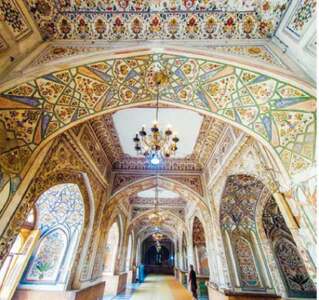PESHAWAR: The Peshawar High Court on Thursday ordered the mining department to ensure an immediate end to mining and stone crushing activities near archaeological sites in the province and warned non-compliant officers of criminal proceedings.
During a hearing into the matter, a bench consisting of Chief Justice Qaiser Rashid Khan and Justice Ishtiaq Ibrahim deputed director (archaeology and museums) Dr Abdul Samad as the focal person for checking compliance with the orders and directed him to produce a report about it by Dec 15 after visiting Tarali heritage site in Mardan, Rani Gatt area in Buner, and archaeological sites in Barikot and other areas.
Chief Justice expressed concern about the functioning of stone crushing units near archaeological sites in the province and warned that if those activities didn’t stop, the court would order the registration of first information reports against the relevant officers for legal action.
The bench also directed deputy commissioners of the respective districts to check mining and crushing near those sites.
Warns non-compliant officers of criminal proceedings
It asked officers of the relevant departments whether the country was created for the installation of stone crushing plants nearby heritage sites.
The chief justice had taken notice of the issue a few weeks agoand summoned the relevant officers for their viewpoint on the matter.
Dr Abdul Samad, additional advocate general Sardar Ali Raza, director general (mines and mineral) and other relevant officers turned up in the court.
The director (archaeology) told the bench that the centuries old Tarali archaeological site was discovered near Sawaldher village in Mardan in 1994 and that was the fourth major Buddhist site here.
He said that the mining activities had been taking place in the surrounding areas threatening the site.
The bench wondered what the relevant departments had been doing since the site was excavated in 1994. It asked the authorities who allowed mining near the site.
Dr Samad said the letters were sent to the relevant officers for checking mining near the site. He added that the structural remains of the archaeological site were fragile and vulnerable to crushing and similar activities.
The director said that the crushing plants were extremely hazardous and damaged the sites.
The bench wondered how the mining department could lease out areas for mining purpose once archaeological remains were discovered there.
The bench directed Dr Samad not to spare anyone involved in the activities under the law.
The director general (mining) said that in accordance with an earlier order of the court mining activities had been closed near most of the sites.
He said when such activities were brought to the department’s notice, action was taken.
The DG pointed out that permission for the installation of crushing plants was given by the industries department and not by the mining department.
The chief justice observed that the court had reports suggesting that mining and crushing had still under way near archaeological sites.
The bench observed that after receiving the report from the director (archaeology), action would be taken against all those responsible for such acts.
Published in Dawn, November 26th, 2021















































Dear visitor, the comments section is undergoing an overhaul and will return soon.